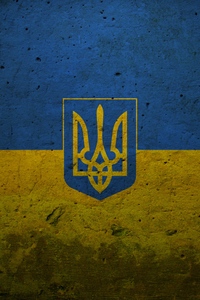Banks recorded a surge in Russian demand for Mir cards

Large Russian banks have recorded an increase in the issuance of Mir national payment cards since February 24 against the backdrop of the imposition of sanctions against Russian banks. This was told to RBC by representatives of VTB, Gazprombank, Alfa-Bank, MKB and Rosbank.
Visa stopped the participation of sanctioned banks in its system Finance
What sanctions were imposed against banks
From February 22 usabegan to be introduced due to the recognition of the DPR and LPR, and subsequently expanded due to the Russian military operation in Ukraine, which began on February 24, sanctions against Russian banks. Sberbank, VTB, Gazprombank, Alfa-Bank, MKB, Novikombank, Sovcombank, Otkritie and RSHB fell under them. The toughest, so-called blocking, sanctions were imposed on VTB, Otkritie, Sovcombank, Promsvyazbank and Novikombank. Visa and Mastercard excluded them from their systems, and the cards of international payment systems issued by these banks stopped working abroad, in foreign online stores, as well as in APPLE Pay and GOOGLE Pay wallets, but continue to work in RUSSIA due to the fact that all transactions within countries go through the National Payment Card System (NSPK). These banks will no longer be able to issue new Visa and Mastercard cards.
How the popularity of Mir cards has grown
Over the past week, VTB customers have opened 15% more Mir cards than a week earlier. In total, since the start of the issue, VTB has issued 11.8 million such cards. The share of transactions on them during this period increased from 22 to 27%, the number of transactions - from 26 to 34%. Since February 24, MKB has recorded an increase in the issue of Mir cards by more than two times. According to Gazprombank's preliminary data, since February 24, the volume of daily issuance of Mir retail cards has increased by 3-5 times. Rosbank fixes an increased and growing demand for Mir cards, a bank representative said, but did not provide specific data. Alfa-Bank also speaks about the growth in demand (but also without estimates).Read together with it:
- О самых распространенных причинах пожаров рассказали в МЧС2 октября, Минск. О самых распространенных причинах пожаров рассказал начальник главного управления надзора и профилактики МЧС Дмитрий Турчин на "Предупреждение чрезвычайных ситуаций в осенне-зимний период. Профилактика пожаров и гибели людей от них", которая прошла в БЕЛТА. "В республике наблюдается рост количества пожаров на 7,7%, и на 1......
- Bloomberg узнал о плане G7 значительно ужесточить санкции против РоссииНовый пакет санкций будет включать меры, в частности, против энергетики, финансов и военной промышленности, а также крупнейших нефтяных компаний России. Разработку пакета G7 планирует завершить в октябре, выяснил BLOOMBERG Страны «Большой семерки» (G7) приближаются к соглашению о значительном ужесточении санкций в отношении России, сообщает агентство Bloomberg со ссылкой на проект заявления. «Мы с...
- Фон дер Ляйен заявила о смене подхода к санкциям против РоссииНовый подход подразумевает не предложение поэтапных санкций, а «гораздо более жесткие меры» в отношении энергетики, финансовых услуг и торговли, все это уже входит в 19-й пакет, заявила глава ЕК Урсула фон дер Ляйен Евросоюз при подготовке 19-го пакета санкций против России меняет подход, переходя «от поэтапного усиления давления к жестким мерам». Об этом заявила глава Европейской комиссии Урсула ...




























































